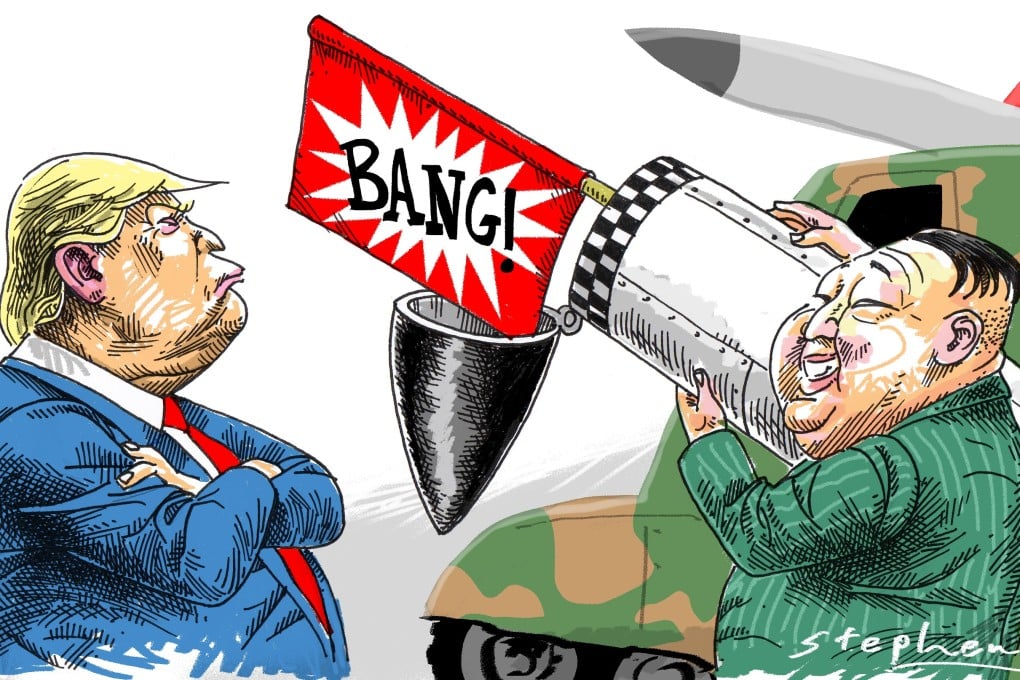Advertisement
Opinion | As Trump targets Iran, North Korea’s Kim would be wise to tone down his rhetoric and lie low
- When the US invaded Iraq in 2003, North Korea’s Kim Jong-il went into hiding, fearing he may end up being targeted like Saddam. As US-Iran tensions escalate now, it is worth wondering what lesson Kim Jong-un has drawn from that episode
Reading Time:3 minutes
Why you can trust SCMP

Political developments in the Middle East invariably reverberate in the Far East. That was true in 2002 when then United States president George W. Bush declared war on “an axis of evil” consisting of Iran, Iraq and North Korea, those states which, according to Bush, “pose a grave and growing danger” and “threaten the peace of the world” by “seeking weapons of mass destruction” – claims unsupported by intelligence and absent inspections carried out by the United Nations.
And it’s also true today that Middle Eastern political developments are resonating loudly in this region, in the wake of the drone strike that eliminated in a single stroke Qassem Soleimani, the Iranian mastermind behind regional terrorism whose demise is likely to produce more of the same.
In that earlier episode, North Korean officials bridled at their American counterparts who cited secret intelligence showing that Pyongyang was cheating by enriching uranium instead of reprocessing spent plutonium. There are two ways of producing fissile material for bombs, and uranium enrichment was barred under the 1994 Agreed Framework between the US and North Korea.
Advertisement
The result was a North Korean nuclear breakout and the situation that we are grappling with today, with Pyongyang having amassed a stockpile estimated at between 30 and 60 nuclear weapons.
But the more telling human tale came with the subsequent “shock and awe” invasion of Iraq in 2003, when it sent then North Korean leader Kim Jong-il – a potential target – fleeing from Pyongyang and staying away from the capital incommunicado for several months.

He did not want to wind up in a hole similar to the one Iraqi dictator Saddam Hussein was eventually found hiding in by US troops who captured him. More likely than not, Kim’s son, Kim Jong-un, accompanied him on that trip, and the experience would have been seared into the memory of the young man and future leader; it may well have forged his determination to build an impregnable nuclear deterrent.
Advertisement
Select Voice
Select Speed
1.00x
